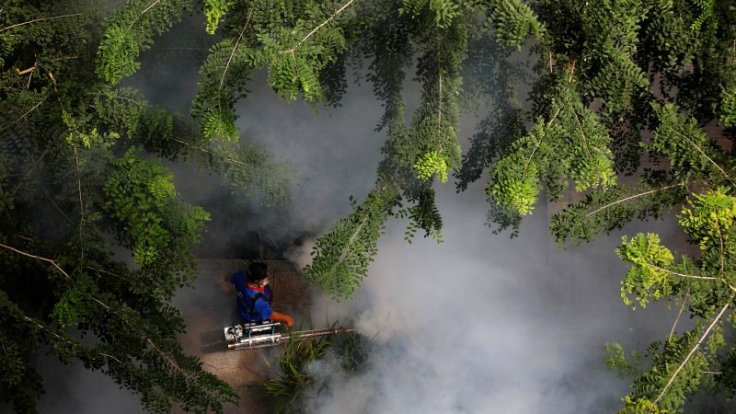Singapore is struggling with a dengue outbreak as more and more patients appear to be seeking treatment in emergency departments. According to the Ministry of Health (MOH), there have been nearly 11,500 cases reported with more than 400 active clusters across the city-state.
Dengue is more of a seasonal disease in Singapore, usually occurring between June and August, but this time the country had to tackle the outbreak a bit early.
Health experts believe that the situation is of grave concern to the entire world because a change in the tropical climate of Singapore, a natural breeding ground for the mosquitoes that carry the virus, could have a huge impact in the global climate. This implies that outbreaks similar to this might become more common and widespread in the near future.

With flu-like symptoms, in extreme cases, the disease can also result in breathing difficulties, organ failures and even death. In a January 2022, global dengue report the World Health Organization declared the outbreak as an endemic in more than 100 countries as the number of cases were increased "30 fold in the last 50 years."
"[Cases] are definitely rising faster. It's an urgent emergency phase now that we have to deal with." said Singapore's Minister for Home Affairs Desmond Tan, the Strait Times reported.
According to Ruklanthi de Alwis, an infectious disease expert and a senior research fellow at the Duke-NUS Medical School, Singapore's recent extreme weather has a lot to do with the surge in dengue cases. "Global warming due to climate change will eventually expand the geographical areas (in which mosquitoes thrive) as well as the length of dengue transmission seasons," de Alwis said.

As per the Meteorological Service of the Southeast Asian country, it is 'heating up' twice as fast as the rest of the world. A record high temperature of 36.7 degrees Celsius was recorded in May alone.
Climate scientist Winston Chow from the College of Integrative Studies at Singapore Management University, believes that this annual outbreak is only going to get worse if the hot weather is accompanied by an even heavier rainfall, CNN reported.
"We will not be able to eradicate dengue (because) the constant weather extremes create the perfect breeding conditions for mosquitoes," said Chow, who came down with dengue twice.

Climate scientists have warned that if the situation does not improve, then more mosquito-borne diseases like Zika and chikungunya will soon spread across the entire world and could even result in another pandemic like corona.
As for Singapore, the National Environmental Agency has warned that the number of cases could exceed 2,000 this month. The residents have therefore been advised to keep a check on any stagnant water sources near their homes. Visiting a general practitioner if experiencing any dengue symptoms is a must because the outbreak might stay for a long time this year.









